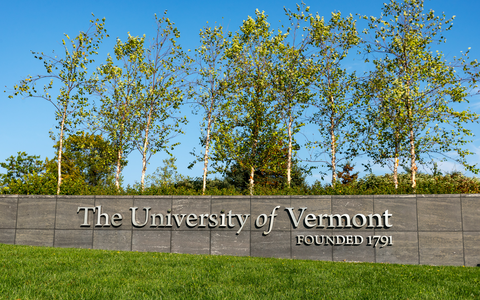 When developing your college list, give serious thought to the features you are looking for in your college experience. Maybe you want small class sizes, a tight-knit community, and close relationships with professors that facilitate access to top research opportunities. Or maybe you’re hoping to live on a campus with loads of school spirit, big-time sports, and vibrant Greek life. Typically, you can’t get all of that in one place—except at a public university’s honors college! Here are our top five reasons to consider applying.
When developing your college list, give serious thought to the features you are looking for in your college experience. Maybe you want small class sizes, a tight-knit community, and close relationships with professors that facilitate access to top research opportunities. Or maybe you’re hoping to live on a campus with loads of school spirit, big-time sports, and vibrant Greek life. Typically, you can’t get all of that in one place—except at a public university’s honors college! Here are our top five reasons to consider applying.
#1 Access to a Top Research University
Honors colleges can combine the best of small liberal arts communities and top-ranking research universities. Students have close, personal access to faculty who are leading scholars in their field, as well as state-of-the-art facilities and ample research grants. As Paul Gilmore, Rutgers Honors College Dean, puts it, “It’s hard to [gain that accessibility] when you’re one of 30,000 undergrads, but when you’ve been handpicked for this program, it’s a different experience.”
#2 A Tight-Knit Community
Students love the tight-knit communities they find within honors colleges. You’ll be among students with unique talents and individuality, and be able to connect with individuals who want to make an impact and are passionate about something bigger than themselves. Additionally, some of these programs offer (or require) honors housing. UConn’s Honors Program boasts five residential living communities that are a “cornerstone of the Honors experience, [where students] support each other academically and socially.” There, you’ll find students discussing class projects, engaging with faculty, and holding extracurricular meetings. But most of all, they’re making lifelong friends.
#3 Alumni Network
Your school’s alumni network is one of your most valuable tools. Public universities cast huge nets with the size of their alumni networks. University of Wisconsin has over 400,000 living alumni, and Penn State has over 700,000. When comparing those numbers to that of the Ivies, the difference in size is substantial. Even Princeton’s alumni network includes only about 95,000 living alumni, although it consistently ranks as the strongest. According to US News, eight of the top ten CEOs on the Fortune 500 list are graduates of public colleges. The size of these networks is impressive and significant!
#4 Affordability
The overall affordability of college is an important factor in feeling secure in your decisions. Consider your plans: How many years of school do you see in your future? Do you plan to attend grad school? If so, the affordability of a public university would be a plus, since you’re likely to have higher overall educational costs.
Many honors programs automatically award a merit-based scholarship to students who enroll. For example, Penn State’s Shreyer Honors College awards an annual $5,000 Academic Excellence Scholarship to each student, regardless of financial need. For the Class of 2026, the University of Vermont offered a $20,000 Presidential Scholarship to every first-year, out-of-state student invited to the Honors College. With an honors college, you’re getting a high-caliber education combined with affordability.
#5 A Diverse Community
If diversity is important to you, a public university would be a great fit. Honors college applicants vary greatly in socioeconomic status, race and ethnicity, religion, and more. In addition, the wide range of academic interests creates an interdisciplinary environment. By immersing yourself in a diverse living and learning community, you’re preparing to become a global citizen by promoting mutual respect and teamwork with those from different backgrounds than your own.
Diversity is central to the mission at Rutgers University’s Honors College, as evidenced by the new Cross-Cultural Competency Course. Beginning in Fall 2022, all incoming Honors College students will take this required course, in which they will “unpack issues they see in our world, evaluate their role in knocking down barriers, [and] engage with peers collaboratively to advance respect, inclusion, and a sense of belonging.” Honors colleges are an opportunity to be at the leading edge of an institution that fosters a diverse community.
Applying to college is a complex and constantly changing process. If you have further questions about making your college decision, contact Collegiate Gateway – we’re always happy to help!
For more guidance, explore our upcoming presentations on our website or set up a complimentary consultation to learn about our admissions consulting services.
